Fill in the blanks with suitable words English Exercise (Cloze Test):
Directions: In the following passage there are blanks, each of which has been numbered. These numbers are printed below the passage and against each, five words are suggested, one of which fits the blank appropriately. Find out the appropriate word in each case.
Related: Logarithm questions
Exercise
Once upon a time, two friends were (1) through the desert. During some point of the (2) they had an argument, and one friend slapped the other one in the face. The one who got slapped was (3), but without saying anything, he wrote in the sand, ‘Today my best friend slapped me in the face.” They kept on walking (4) they found an oasis, where they (5) to take a bath. The one, who had been slapped, got (6) in the quicksand and started drowning, but the friend saved him. After the friend (7) from the near drowning, he wrote on a stone, “today my best friend saved my life.” The friend who had slapped and saved his best friend asked him, “After I hurt you, you wrote in the sand and (8), you write on a stone, why?” The other friend (9), “When someone hurts us, we should write it down in sand where winds of forgiveness can erase it away. But, when someone does something good for us, we must (10) it in stone where no wind can ever erase it.”
Question 1: (a) crawling
(b) speaking
(c) swimming
(d) walking
Question 2: (a) journey
(b) sand
(c) running
(d) border
Question 3: (a) dead
(b) captured
(c) presentable
(d) hurt
Question 4: (a) as
(b) until
(c) from
(d) with
Question 5: (a) decided
(b) fell
(c) made
(d) want
Related: England King of queens quizzes
Question 6 (a) home
(b) stuck
(c) blended
(d) mixed
Question 7: (a) separated
(b) leaked
(c) died
(d) recovered
Question 8: (a) so
(b) how
(c) when
(d) now
Question 9: (a) called
(b) tell
(c) replied
(d) questioned
Question 10: (a) talk
(b) push
(c) engrave
(d) add
Related: quiz on rivers of the world
Exercise
Essentially I am interested in (1) world, in this (2), not in some other (3) or a future life.
Question 1: (a) this
(b) that
(c) real
(d) imaginary
Question 2: (a) life
(b) reality
(c) existence
(d) truth
Question 3: (a) reality
(b) world
(c) life
(d) plan
Exercise
One rainy day while driving me home from school my father stopped to offer a frail old man a lift. Though he was headed in the opposite (1). my father insisted. By the time we (2) home it was late and I was tired and (3) with my father. That night, my father (4) me a bedtime story as usual – A (5) Emperor was once asked “Sire, while you (6) rich and powerful, your teacher doesn’t even (7) a piece of land yet to visit him, (8) don’t you summon him to court ?” The Emperor (9) and said, “You are mistaken, my teacher is (10) than I am. My land can be lost in a war but he possesses knowledge which can never be stolen.”
‘The old man was my teacher” my father concluded.
I have never forgotten the lesson my father ‘taught’ me that day.
Related: Movie quiz questions
Question 1: (a) route
(b) manner
(c) direction
(d) side
Question 2: (a) left
(b) arrived
(c) return
(d) gone
Question 3: (a) complained
(b) annoying
(c) hungry
(d) upset
Question 4: (a) taught
(b) described
(c) told
(d) reads
Question 5: (a) greedy
(b) honest
(c) foolish
(d) mighty
Question 6: (a) are
(b) being
(c) were
(d) so
Related: Buddhism test multiple choice
Question 7: (a) own
(b) can’t
(c) acquire
(d) possessed
Question 8: (a) however
(b) but
(c) instead
(d) why
Question 9: (a) shouted
(b) silent
(c) thinks
(d) smiled
Question 10: (a) powerful
(b) wise
(c) wealthy
(d) richer
Related: List of Political Parties in all countries of the World
Exercise
Operation Flood was (1) with the primary objective of (2) rural milk producers with urban milk consumers, by (3) viable producer co-operatives in the milk sheds, and thus (4) the rural milk producers to earn higher income from milk.
Question 1: (a) launched
(b) devised
(c) started
(d) begun
Question 2: (a) making
(b) joining
(c) linking
(d) connecting
Question 3: (a) creating
(b) exposing
(c) generating
(d) providing
Question 4: (a) making
(b) hoping
(c) enabling
(d) giving
Exercise
A (1) becomes a flowing stream only (2) there is continuity of (3) life in a society. In (4) words, a (5) culture comes into (6) when people (7) a continuous way of life. Such (8) expresses itself (9) various ways in common traditions and (10) of conduct.
Question 1:
(a) Civilization
(b) Culture
(c) Idea
(d) Philosophy
Question 2:
(a) At
(b) What
(c) When
(d) As
Question 3:
(a) Individual
(b) Nature’s
(c) Society
(d) Collective
Question 4:
(a) Different
(b) Difficult
(c) Other
(d) Many
Question 5:
(a) Distinctive
(b) Unique
(c) Clear
(d) Foggy
Question 6:
(a) Phase
(b) Existence
(c) Action
(d) Thinking
Question 7:
(a) Develop
(b) Create
(c) Follow
(d) Except
Question 8:
(a) Inconsistency
(b) Uniqueness
(c) Greatness
(d) Continuity
Question 9:
(a) In
(b) Of
(c) With
(d) At
Question 10:
(a) Rules
(b) Regulations
(c) Norms
(d) Laws
Exercise
In all kinds of writings (1) is the most (2) virtue. You should write in a simple and (3) manner. The words chosen should be (4) in meaning. Try not to use (5) words merely because they are (6).
Question 1: (a) simplicity
(b) complexity
(c) vagueness
(d) toughness
Question 2: (a) natural
(b) romantic
(c) admired
(d) hidden
Question 3: (a) tough
(b) natural
(c) straightforward
(d) showy
Related: computer networks exams questions
Question 4: (a) correct
(b) clear
(c) apt
(d) suitable
Question 5: (a) difficult
(b) fine
(c) lengthy
(d) small
Question 6: (a) easy
(b) familiar
(c) good
(d) literary
Exercise
(1) has marked man’s (2) progress from (3) times. Modern medicine is built on the innovative (4) of scientists and physicians such as Louis Pasteur. He (5) in a revolution in medicine by producing a (6) against rabies in 1880. (7) with Robert Koch, Pasteur founded (8). There has been no (9) back (10) then.
Question 1: (a) Discovery
(b) Innovation
(c) Reforms
(d) Applications
Question 2: (a) amazing
(b) alluring
(c) alarming
(d) charming
Question 3: (a) antique
(b) mid-historic
(c) recent
(d) remote
Question 4: (a) fantastic
(b) dilemma
(c) genius
(d) brain
Question 5: (a) ushered
(b) projected
(c) prospered
(d) thrushed
Question 6: (a) injection
(b) medicine
(c) antidote
(d) vaccine
Related: Soil quiz
Question 7: (a) Along
(b) Also
(c) Going
(d) Working
Question 8: (a) immunology
(b) pathology
(c) zoology
(d) bacteriology
Question 9: (a) viewing
(b) looking
(c) seeing
(d) peeping
Question 10: (a) till
(b) from
(c) until
(d) since
Related: trivia questions india
Exercise
Like unemployment, pollution is (1) in Agra. The Supreme Court (2) the closure of polluting industrial units in Agra until they (3) with the environmental standard. But this hasn’t ended Agra’s (4)
Question 1: (a) epidemic
(b) endemic
(c) geographic
(d) physical
Question 2: (a) summoned
(b) demanded
(c) ordered
(d) compelled
Question 3: (a) abided
(b) agreed
(c) co-operation
(d) complied
Question 4: (a) woes
(b) threats
(c) ravages
(d)compulsion
Exercise
Martin Luther King, Jr., was born Michael Luther King, Jr., (1) his grandfather had his name (2) to Martin. Martin Luther attended segregated public schools in Georgia, (3) from high school at the age of fifteen; he received the B.A. degree in 1948 (4) Morehouse college, a distinguished Negro institution of Atlanta from which both his father and grandfather had graduated. After three years of (5) study at Crozer Theological Seminary in Pennsylvania where he was elected president of a (6) white senior class, he was awarded the B.D. in 1951. (7) a fellowship won at Ebenezer he enrolled in graduate studies at Boston University, completing his residence (8) the doctorate in 1953 and receiving the degree in 1955. In Boston he (9) and married Coretta Scott, a young woman of (10) intellectual and artistic attainments.
Question 1: (a) And
(b) So
(c) Since
(d) But
Question 2: (a) Given
(b) Changed
(c) Become
(d) Made
Question 3: (a) Graduating
(b) Finishing
(c) Graduated
(d) Finished
Question 4: (a) In
(b) From
(c) By
(d) With
Question 5: (a) Theological
(b) Intellectual
(c) Educational
(d) Psychological
Related: Renaissance test answers
Question 6: (a) Predetermined
(b) Predominantly
(c) Significantly
(d) Somewhat
Question 7: (a) From
(b) By
(c) With
(d) Through
Question 8: (a) For
(b) Of
(c) About
(d) To
Question 9: (a) Saw
(b) Eloped
(c) Met
(d) Watched
Question 10: (a) Common
(b) Particular
(c) Uncommon
(d) General
Related: Basic Economics questions and answers
Exercise
One of the (1) we have to face is that of unemployment. It is a big problem, a human problem, which we cannot (2). Yet in looking (3) it, it has to be remembered that merely giving some kind of occupation to a large number of people does not ultimately increase employment or lessen unemployment. Employment comes by newer and more effective means of wealth production. The whole experience and history of the past 200 years shows that it comes (4) the growth of technological methods. Do not imagine that we can effectively deal (5) the problem of unemployment without (6). We cannot. Every country which boasts of (7) employment is a country which is technologically advanced. Every country which is not technologically advanced has unemployment or under-employment. Therefore, if a country is to advance, she must advance in science and technology. The fact is that our poverty is (8) our backwardness in science and technology. If we (9) that backwardness we create not only wealth (10) employment.
Question 1: (a) major problem
(b) major problems
(c) main problem
(d) serious problem
Question 2: (a) ignore
(b) avoid
(c) overlook
(d) neglect
Question 3: (a) into
(b) after
(c) at
(d) on
Question 4: (a) by
(b) through
(c) for
(d) from
Question 5: (a) in
(b) off
(c) about
(d) with
Related: Brain teasers
Question 6: (a) technological progress
(b) technical progress
(c) technological temper
(d) technical temper
Question 7: (a) complete
(b) total
(c) full
(d) ultimate
Question 8: (a) due to
(b) owing to
(c) because of
(d) on account of
Question 9: (a) treat
(b) remedy
(c) remove
(d) eradicate
Question 10: (a) but
(b) but also
(c) but even
(d) and also
Exercise
Whether there is such a (1) as a soul, or whether there is survival after (2) or not, I do not know; and important as these (3) are, they do not trouble men in (4).
Related: Cube and cube root worksheets
Question 1: (a) fact
(b) thing
(c) reality
(d) idea
Question 2: (a) life
(b) existence
(c) death
(d) reality
Question 3: (a) problems
(b) situations
(c) questions
(d) queries
Question 4: (a) the least
(b) the most
(c) not at all
(d) actually the best
Today, twenty-two years after the bank (1), it has over a thousand branches all over the country and the staff (2) about twenty-three lakh borrowers. We decided to operate (3) from conventional banks who would ask their clients to come to their office. Many people in rural areas found this (4). Our bank is therefore based on the (5) that people should not come to the bank but that the bank should go to the people. Our loans are also (6) we give them for activities from candle making to tyre repair. We also keep (7) checks on the borrower through weekly visits. We do this to make certain that the family of the borrower is (8) from the loan.
Question 1: (a) origin
(b) commence
(c) existed
(d) inaugurated
Question 2: (a) assemble
(b) cope
(c) interact
(d) handle
Question 3: (a) differently
(b) similar
(c) reverse
(d) opposite
Question 4: (a) worried
(b) upset
(c) panicking
(d) anxious
Question 5: (a) principle
(b) discipline
(c) opportunity
(d) chance
Question 6: (a) worth
(b) vary
(c) disburse
(d) contrast
Question 7: (a) consistently
(b) regular
(c) often
(d) frequently
Question 8: (a) benefiting
(b) serving
(c) welfare
(d) obliged
Exercise
The keeper, Lord Shiva himself, is known to be the greatest hunter of them all, as he sits on a tiger skin and covers his (1) body with animal fur. But to (2) in (3) killing of animals is against the (4) law, as one may kill only that which one can (5). However, man being the only (6) who kills for sport, knowing it to be sport, thereby (7) all norms of (8) behaviour. The Americans (9) out the bison from the face of North America, as the Indian Kings and British did the cheetah and almost the lion and tiger from India – animals which you do not eat, but (10) the walls of your house with.
Question 1: (a) beautiful
(b) bare
(c) vacant
(d) uncovered
Related: quiz on Water Pollution with answers
Question 2: (a) involve
(b) include
(c) indulge
(d) interfere
Question 3: (a) wanton
(b) unreasonable
(c) rash
(d) disregarded
Question 4: (a) spiritual
(b) cosmic
(c) supernatural
(d) manly
Question 5: (a) consume
(b) devour
(c) gobble
(d) grab
Question 6: (a) beast
(b) brute
(c) creature
(d) animal
Question 7: (a) transferring
(b) desecrating
(c) transgressing
(d) decorating
Question 8: (a) contingent
(b) civilised
(c) complementary
(d) crude
Question 9: (a) eradicated
(b) erased
(c) wiped
(d) removed
Question 10 (a) garnish
(b) tarnish
(c) decorate
(d) grandeur
Related: Questions on facts about Universe and Space
Exercise
My mother waved me goodbye and the bus (1). The man sitting (2) to me was a doctor (3) to Kannur, (4) participate in a conference.
Question 1: (a) going
(b) started
(c) arrived
(d) stopped
Question 2: (a) next
(b) besides
(c) near
(d) side
Question 3: (a) coming
(b) arriving
(c) going
(d) visiting
Question 4: (a) to
(b) for
(c) so
(d) and
Exercise
Recent (1) in science and technology have made it possible (2) geneticists to find out abnormalities in the unborn foetus and take (3) action to (4) some defects which would otherwise prove to be fatal to the child. Though genetic engineering is still in its infancy, scientists can now predict with (5) accuracy a genetic disorder. It is not yet an exact science (6) they are not in a position to predict when exactly a genetic disorder will (7). While they have not (8) been able to change the genetic order of the gene (9) germs, they are optimistic and are holding out that in the near future they might be successful (10) achieving this feat. They have however, acquired the ability to manipulate tissue cells.
Question 1: (a) advances
(b) advancement
(c) advancing
(d) findings
Question 2: (a) to
(b) for
(c) in
(d) on
Question 3: (a) remedy
(b) quick
(c) immediate
(d) remedial
Related: binomial theorem practice worksheet
Question 4: (a) correct
(b) rectify
(c) twist
(d) neglect
Question 5: (a) great
(b) greater
(c) greatest
(d) more
Question 6: (a) since
(b) as
(c) because
(d) for
Question 7: (a) come in
(b) grow in
(c) find in
(d) set in
Question 8: (a) yet
(b) till
(c) still
(d) until
Question 9: (a) to
(b) for
(c) against
(d) in
Question 10: (a) at
(b) on
(c) in
(d) to
There are quite a few people in the world who are fat and are (1). These people are (2) to several kinds of illness. Medical advice to these people is to (3) their weight. But it is found difficult to follow this (4) in its totality (5) who want to reduce before (6) must drink about a glass full of water, of maximum bearable warmth. The gulping should be done (7). Very soon these people will find their weight coming down by four or five kilograms. Warm water (8) all the glands and secretions in the stomach, and they in turn let the food eaten be digested well. The person gets the (9) out of the nourishment. It also reduces the intake (10) because it eliminates incomplete assimilation of food.
Question 1: (a) underweight
(b) overweight
(c) physically fit
(d) thin
Question 2: (a) susceptible
(b) unsusceptible
(c) safe
(d) unsafe
Question 3: (a) increase
(b) reduce
(c) keep constant
(d) ignore
Question 4: (a) command
(b) order
(c) advice
(d) vice
Question 5: (a) Dogs
(b) Cats
(c) Pigs
(d) People
Related: Sense of Direction test
Question 6: (a) working
(b) dancing
(c) singing
(d) eating
Question 7: (a) slowly
(b) gradually
(c) rarely
(d) quickly
Question 8: (a) endangers
(b) activates
(c) revitalises
(d) discourages
Question 9: (a) least
(b) nothing
(c) nominal
(d) most
Question 10: (a) oxygen
(b) bear
(c) whisky
(d) food

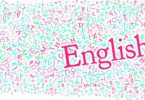
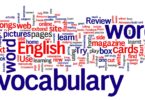
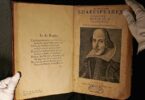
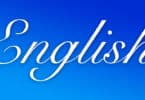

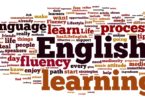
are cloze test questions asked in SSC CHSL exam?